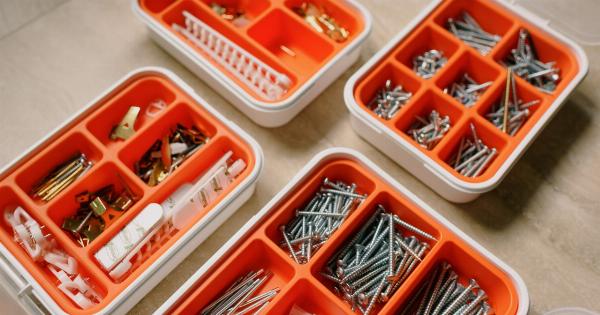Having a well-stocked car medicine cabinet can be a real lifesaver in times of emergency. Whether you’re on a road trip or just running errands around town, it’s important to be prepared for any unexpected health issues that may arise.
In this article, we will guide you through the essentials that should be in your car’s medicine cabinet.
1. Basic First Aid Kit
A basic first aid kit is an essential item for every car. It should include adhesive bandages of various sizes, sterile gauze pads, adhesive tape, antiseptic wipes, scissors, tweezers, and disposable gloves.
These items will come in handy for treating minor cuts, scrapes, burns, and other injuries.
It’s also a good idea to include a first aid manual or guidebook that provides instructions on how to handle different types of injuries. This will help you provide proper care until you can reach professional medical help, if needed.
2. Over-the-Counter Medications
Include a variety of commonly used over-the-counter medications to address different ailments that may arise while on the road. Some essential OTC medications to consider for your car’s medicine cabinet include:.
A. Pain Relievers: Keep a bottle of acetaminophen or ibuprofen to alleviate minor aches, pains, and headaches.
B. Antihistamines: Allergies can strike at any time, and having antihistamines like diphenhydramine can offer relief from symptoms such as sneezing, itching, and runny nose.
C. Anti-diarrheal Medications: Digestive issues can be unpredictable, so it’s wise to keep medications like loperamide in case of sudden diarrhea or upset stomach.
D. Motion Sickness Medications: If you or your passengers are prone to motion sickness, having medications like dimenhydrinate or meclizine can prevent or minimize the discomfort while traveling.
3. Prescription Medications
If you or any of your passengers have chronic medical conditions that require prescription medication, it’s crucial to have an emergency supply in your car.
Make sure to keep these medications in their original containers with legible labels, along with the instructions provided by the prescribing healthcare professional.
It’s also a good idea to check the expiration dates of prescription medications regularly and replace them as needed. Extreme temperatures in a car can impact the effectiveness of certain medications, so always store them in a cool, dry place.
4. Allergy Relief
Allergy sufferers know how unpredictable reactions can be. Keep a supply of allergy relief items in your car, such as antihistamine eye drops, nasal sprays, and even an epinephrine auto-injector if you or your family members have severe allergies.
This way, you’ll be prepared to address unexpected allergic reactions while on the go.
5. Cold and Flu Remedies
When you’re feeling under the weather, the last thing you want is to be caught unprepared, especially if you’re away from home.
Stock your car medicine cabinet with cold and flu remedies like cough suppressants, decongestants, throat lozenges, and nasal saline sprays. These can provide relief and help you manage symptoms until you can rest and recover.
6. Sunburn Relief
Long drives and sunny weather often go hand in hand. To protect your skin from the sun’s harmful rays, always have a good sunscreen with a high SPF in your car.
However, if you or your passengers end up with a sunburn, having sunburn relief products can ease discomfort. Include aloe vera gel, cool compresses, and hydrocortisone cream to treat and soothe sunburned skin.
7. Insect Bite and Sting Treatment
Outdoor adventures can sometimes result in insect bites or stings, leading to itching, swelling, and discomfort.
Include items like insect bite relief creams, hydrocortisone cream, and antihistamine tablets to provide relief from allergic reactions or local skin irritations caused by insect bites or stings.
8. Hand Sanitizer and Disinfecting Wipes
Keeping your hands clean is crucial for preventing the spread of germs. Include a travel-sized hand sanitizer in your car medicine cabinet, along with a pack of disinfecting wipes.
These will come in handy when you can’t wash your hands with soap and water, such as after using a public restroom or handling dirty surfaces.
9. Emergency Contact Information
It’s important to have contact information readily accessible in case of an emergency. Include a list of emergency phone numbers, such as your primary care physician, local hospitals, poison control center, and roadside assistance service.
This ensures that you have the necessary information at your fingertips when time is of the essence.
10. Personalized Essentials
In addition to the essential items mentioned above, it’s essential to consider any personalized needs you or your family members may have.
This could include specific medications, medical devices, or other items recommended by your healthcare provider for managing chronic conditions or allergies.
Remember to regularly check the contents of your car’s medicine cabinet and replenish any items that have been used or expired. It’s better to be overprepared than underprepared when it comes to your health and well-being on the road.




























